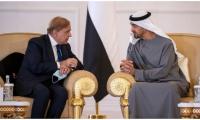The empowerment of a woman is, quite simply, her power to make decisions about every aspect of her life. In this simplicity lie matters of great complexity, especially when it comes to Pakistani women.
Though empowerment is the same across cultures and countries, the route to this empowerment can vary starkly from even Peshawar to Karachi – since it is deeply connected with the local socio-cultural and religious patriarchal systems. These systems are archaic and primitive and part of an embedded status quo that does not like to be challenged.
A well-intentioned state can focus on the education, health, security and protection of women through institutions, law and policies but it is also important to focus on the deterrents to such change.
Give her schools – but what about the parents who decide that education is not a priority for her?
Make health and reproductive care clinics for her – but what of those who do not allow her to seek medical help?
She has a right to divorce – but will society let her get away with even thinking about it, let alone actually acting on it?
There may be a legal ban on dowry – but can the state effectively protect her from dowry related violence or death?
Address the gender pay-gap – but who will take into account the unpaid hours of domestic service she provides for a job she inherited because she was born a woman?
Unless the motivation for real change is in part of the grassroots, laws, allocation of resources and institutions will have little ability to protect and empower women. Which is why this struggle for empowering women is not only in the hands of those women, but in the hand of every woman and man in Pakistan. It is a societal responsibility that needs to be addressed now.
There is a rising impetus of our very own empowerment movement, the Aurat Movement in Pakistan. This movement is causing discomfort and restlessness amongst many threatened circles but it continues to march on.
From demonstrations and protests against heinous anti-women activities to the ‘Aurat March’ and media representation of housewives, things are starting to change and the whispers are turning into a loud chatter. This discourse has been catalyzed by the easy and widespread access to social media, directly or indirectly. Information is accessible to all.
TV series, films and shows are boldly addressing and raising public awareness around social issues that affect women negatively – marital abuse, rape, the ‘fair’ politics of beauty, unfair inheritance, infidelity etc. Social media influencers have the power to reach and teach. Women who are trespassing into the forbidden areas of sports, media, law, activism, industry are being lauded instead of disparaged. Bold and brave women and men, unafraid to speak, are challenging the very power and patriarchal structures that are shackles for them.
The conversations and the fight that were once uncomfortable, ignored or dismissed diplomatically are openly entering the mainstream. The spectrum of ‘political correctness’ thereby is also shifting and changing.
The past year has been devastating for women globally, and the UN predicts that, if not given adequate relief and support, the effects of the pandemic will set women back 25 years. This is why there is more of a reason now, than ever before, why the Aurat Movement needs our support. That means real support and not just a sympathetic acknowledgement or superficial Facebook status. This change begins in homes, with fathers and daughters, sons and mothers, neighbours and house help.
The writer is the social adviser to the ambassador of Pakistan in Norway.







